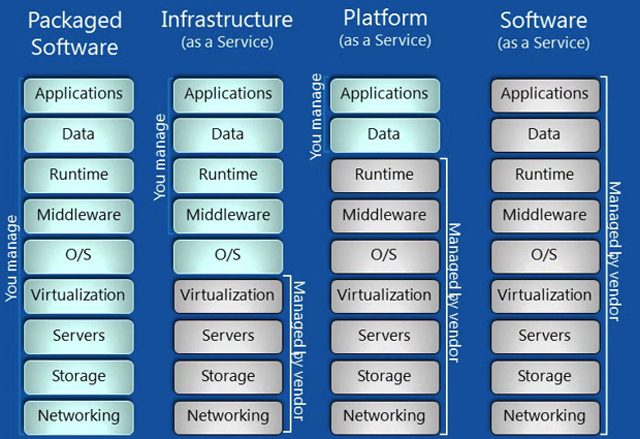I received a great question from Post.Bid.Ship., Inc. board member Base Horner the other day. I decided it was such a good question, I’m publishing my response to him here!
His question was “As Post.Bid.Ship. grows, will we eventually buy our own servers or do you feel we can continue to outsource our hosting?” His question came during a time when our hosting partner for Post.Bid.Ship. was unable to keep our site up because it had grown in popularity (having a popular website can sometimes be a double-edged sword.)
And as timing would have it, Entrepreneur Magazine was featuring my commentary on this very subject in an article on technology so this was something I had given recent thought to (click here to read the Entrepreneur Magazine article).
Let me be clear upfront, I am a big fan of outsourcing (having once owned a company called Think Outsource pretty much demonstrates that). And there is never a right answer to Base’s question on whether to share, lease or own your technology and opinions differ widely on this subject (go ask your IT admin if she approves of being outsourced and you will see what I mean).
Yes, there are times when a company has such a high level of customization that you must own the technology. However, my feelings are that 95% of companies should place their public facing website with a reliable hosting partner like 1and1 or Hostway or in a reliable data center like GoGrid or Sungard, that can offer 24/7 support, multiple global locations and the highest level of data security and connectivity.
I know, someone reading this now is thinking of companies like Apple that do in fact own their data centers. There are in fact some capital benefits (think Microsoft) and added security (think Raytheon) for owning your own data center but Post.Bid.Ship. is still a long way from experiencing that need. Even Netflix still hosts their servers in Amazon’s data centers. However, if Post.Bid.Ship. becomes as big as Google, you can bet my answer will change.
My programmers would tell you a much different story. They would prefer we owned our own servers. That isn’t happening on my watch, though.
Why? I feel that programmers (even my rockstars) having root access to a server’s operating system leads to the development of undisciplined code along with the use of hacks, jumper cables and baler twine to hold the web app together. By using a strict hosting environments like Microsoft Azure, Rackspace Cloud, AppHarbor (my favorite) or even (gulp) GoDaddy, I feel it forces a development team to build a more scalable application that follows a strict adherence to best practices.
With the onset of Infrastructure As A Service (IaaS) and Platform As A Service (PaaS), a company’s choices have just recently become much broader than in the past (Google these terms if they are unfamilar to you because they are all the rage in the web world).
Products like Amazon EC2 (an IaaS platform) have empowered technologists allowing them to build their own data centers without the hardware (think AppHarbor) while products like Microsoft Azure and Google App Engine (both PaaS platforms) have empowered developers to by-pass the need for hardware and software engineers.
Below is a chart that shows the difference between owning an onsite server (shown as Packaged Software), IaaS, PaaS, and Software As A Service (SaaS). What is SaaS? A good example of SaaS companies are Salesforce.com, Google’s Gmail service and our beloved Post.Bid.Ship.
A sales rep from Rackspack and I actually had this debate just recently. While he made valid arguments that Post.Bid.Ship. has grown to the size we should begin looking to lease a dedicated server, I pushed defiantly against his “par for the course, ‘IT’ thinking, no holds barred, don’t limit me” sales pitch that has been in my opinion too prevalent in technology over recent years.
While there is nothing wrong with that type of approach, I personally would rather be visiting with clients or designing a new product feature rather than sitting behind a server applying security updates (for those who know me, I am not the server room type). So owning or leasing a dedicated server is not in my near future.
However, let me caution you that my decision doesn’t come without consequences. Given that I have experienced major outages (like recently) and glitches that seem to happen at the very wrong time (I once had a hosting vendor shutdown by the FBI for their ties to organized crime the day my client’s TV special debuted on HBO and I managed his website). Oh yes, how I wish my hosting partners would make it easier for me to defend my position to outsource to them:)
P.S. These are the words that every Internet executive hates to see:

